'The bullying got worse and worse and I snapped'
- Published
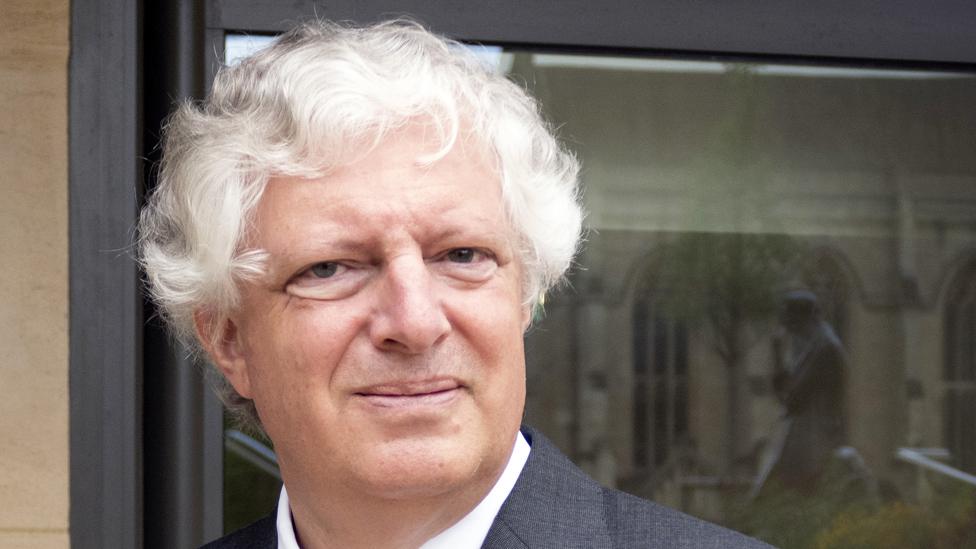
Guy Hands' investment firm Terra Firma has reported assets of £4.7bn
The BBC's weekly The Boss series profiles different business leaders from around the world. This week we speak to UK investor and philanthropist Guy Hands.
Guy Hands looks back on a difficult childhood that saw him badly bullied at school.
Severely dyslexic, and moving to the UK from Zimbabwe at the age of three, being different made him a target when he was a youngster in late 1960s and early 1970s England.
"Eventually I lost it when I was about nine," he says. "We had a supply teacher and she wasn't particularly good at keeping control in the class, and so the bullying got worse and worse.
"One day I snapped, and I'm not proud of it, but I basically brought a desk down on another kid."
After that, he was removed from mainstream education and sent off to a special school for two years, where things got even worse.
"At one stage, I spent four days in hospital because one of the kids accidentally, or deliberately, tried to drown me. Which wasn't very good," says the 59-year-old.
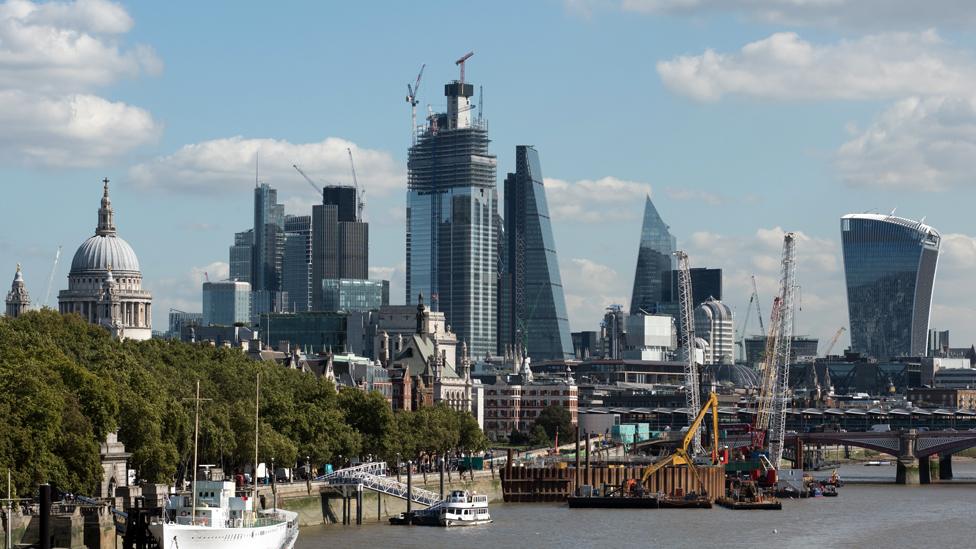
Mr Hands made his fortune in the City of London in the 1980s and 90s
Today one of the UK's most high-profile investors, with an estimated self-made fortune of £265m, , externalMr Hands is the boss of investment fund Terra Firma.
He formed the company in 2002, after previously making his name at investment banks Goldman Sachs and Nomura.
While his career has mostly been a success, Mr Hands speaks openly about the one high-profile failure - his ill-fated decision to buy EMI Records back in 2007, just before the start of the global financial crisis.
Mr Hands says that bleak as his childhood was, it gave him his drive to make something of his life.
"I don't think it is an uncommon thing for people who come into a country as immigrants, that strange combination of not feeling you belong, and so that you feel you've got something to prove.
"And then you compound that with pretty extreme dyslexia, and you either sink or you swim. And I swam."
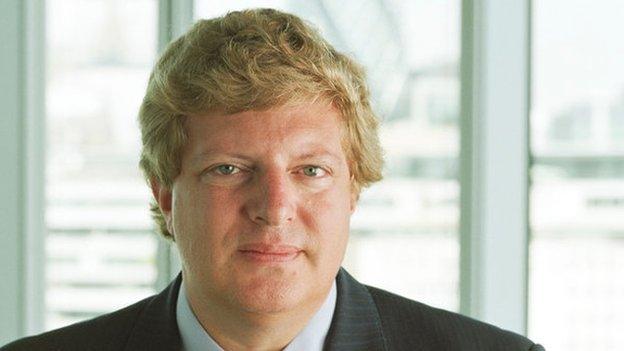
Mr Hands helped to introduce more diversity into the City of London's workforce
After two years at the special school, Mr Hands' life took a significant turn for the better at the age of 11, when he got into a grammar school - Judd, in the Kent town of Tonbridge, south-east of London.
Although his dyslexia means that he still struggles to read, he excelled at economics, getting an A at A-level. He also got an E in physics.
Although he had only two A-levels rather than the usual three, at 18 he applied to Oxford University.
Keble, his first-choice college at Oxford, invited him for an interview, only to turn him down "pretty much there and then".
His second choice - Mansfield - hadn't called him for an interview, but he decided to walk around and present himself anyway.
"They said, 'Go home, and if we want you, we'll contact you,'" says Mr Hands. "So I made the perfectly logical assumption that if I went home, I wasn't going to be contacted.
"So I didn't go anywhere, I just sort of camped out outside the college."
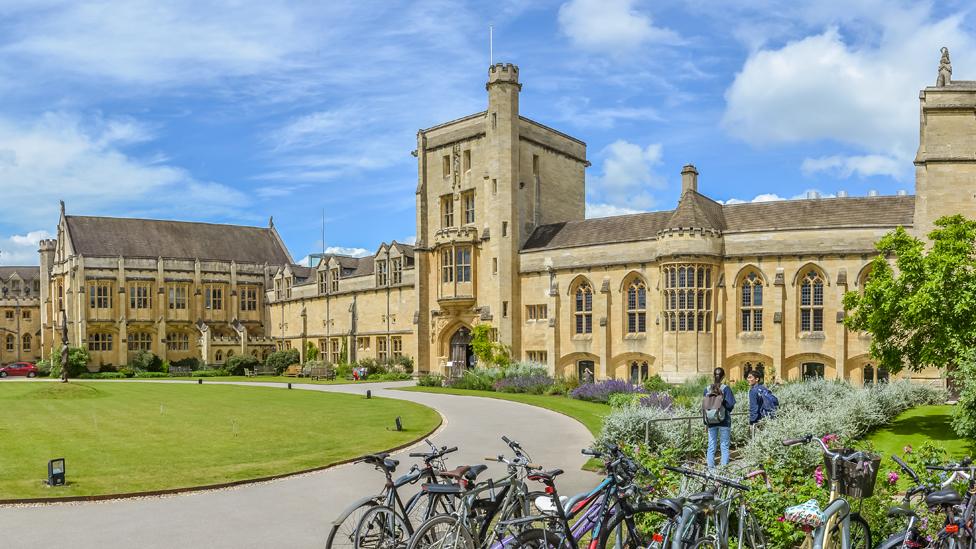
Mr Hands refused to leave Mansfield College until he got an interview
A secretary at Mansfield eventually took pity on him and arranged for him to have an interview slot a few days later. Somewhat miraculously, he was accepted.
At Oxford, Mr Hands juggled doing his studies with running his first business - an art company called Artsake that employed fellow students in cities across the UK to sell paintings door-to-door.
At one point, he had 65 people working for him and it was lucrative enough for him to buy his first house. But then financial disaster struck when a bad deal to buy a shop in Oxford meant that he was liable to fix a subsidence problem.
"It cost over £40,000, which was a huge amount of money in those days," he says. "A house at the time would cost £12,000, so it was an enormous amount of money.
"I went to the careers adviser and his advice was to declare bankruptcy... Otherwise, he said, I'd spend the rest of my life paying off the debt.
"I didn't regard that as a good answer... so I said, 'What company pays the most?' He said, 'Goldman Sachs.'"

More The Boss, external features:

So in 1982, aged 23, Mr Hands became a trader at Goldman Sachs' UK office in the City of London.
He quickly thrived and rose up through the business, earning a fortune. He had an uncanny knack of spotting good investments, helped by the fact that instead of employing the then typically brash, hard-drinking, white, male City traders, he brought in "very, very intellectually bright, technical, nerdish people".
"In the group, we had an Indian, a Pakistani, an African-American and a woman. We were a very culturally diverse team. Instead of going out for drinks, we'd pore over documents, looking for the little facts that would give us an advantage."
After 12 years at Goldman, he moved to Nomura in 1994, before forming his own investment fund - Terra Firma - in 2002.
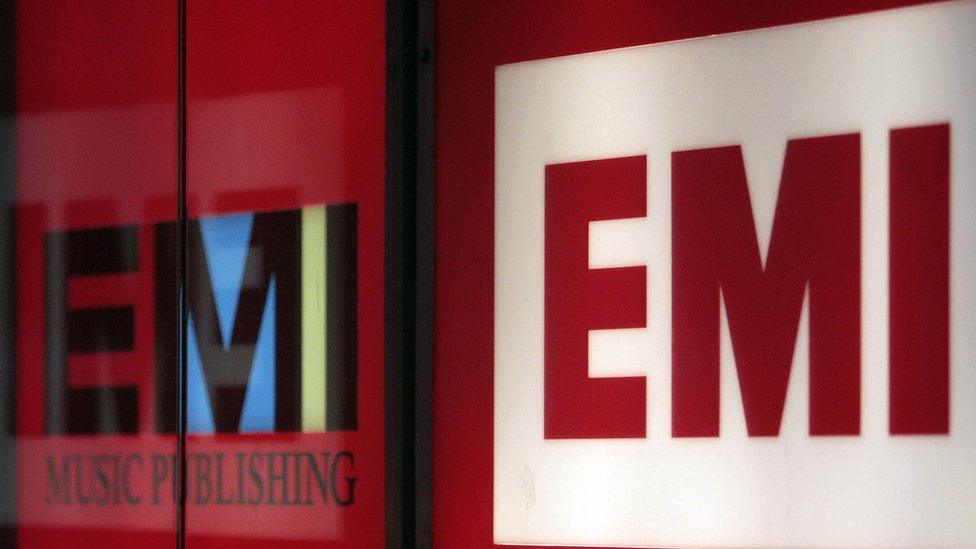
Terra Firma had to hand EMI over to Citigroup. EMI is now part of Warner Music Group
Success continued to follow after success until August 2007, when he bought EMI for £2.4bn.
It turned out to be entirely the wrong time to do such a huge deal, as it was just before the start of the global financial crisis. It also coincided with a big fall in the sale of physical records, as people turned to downloads - legal and illegal - and then streaming services instead.
Terra Firma was soon unable to service the loans it had taken out to fund the purchase. It eventually had to hand EMI over to its main lender, US bank Citigroup. Mr Hands says he personally lost £156m., external
He subsequently twice tried and failed to sue Citigroup for compensation, accusing its bankers of misleading him when they recommended he should go ahead with the takeover.
With hindsight, Mr Hands says that just before buying EMI, success had gone to his head. He says he had previously only taken very small, very calculated risks in his career, but that wasn't case with EMI.
"Everyone was telling me how wonderful we were, and how successful we were, and how we could do anything.
"And the reality is that I didn't totally believe them, but I believed them a little bit too much.
"It was very, very poor risk management. That was my great skill and I blew it."
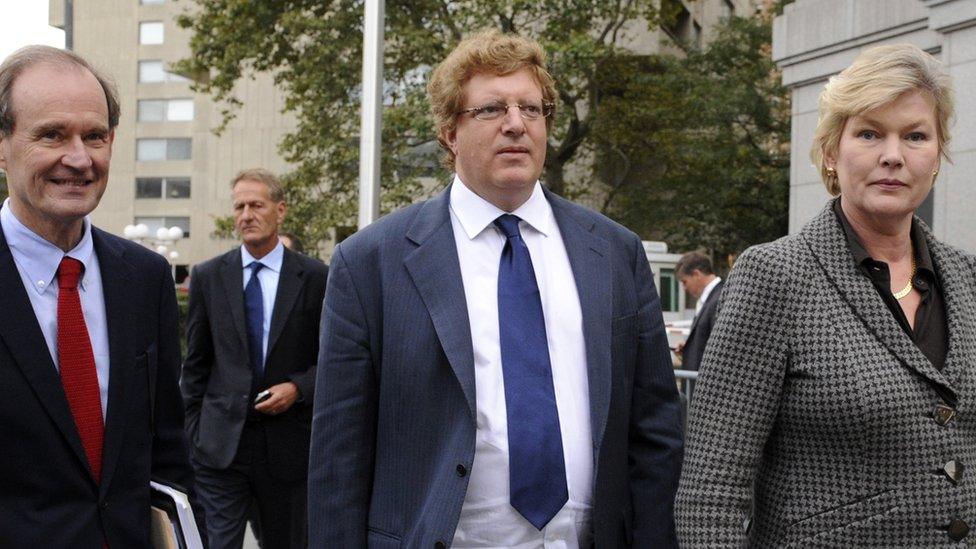
Mr Hands twice tried, unsuccessfully, to sue Citigroup for compensation
He admits that the didn't get over EMI until 2016, nine years after he first bought it.
Today Terra Firma is reported to have assets of £4.7bn, and Mr Hands has the chairman title. Its assets include McDonald's Nordic operations, as well as renewable energy firms, housing companies and aviation firms.
When not running the business, Mr Hands makes time for charity work. He says he likes to give funds to "charities that find it difficult to raise money", such as those dealing with social deprivation, prisons and alcohol abuse.
He has also given many millions to Mansfield on the understanding that it would increase the number of places it gives to children from state schools. Today it has the highest state sector intake in Oxford.
Helen Boden, chief executive of the British Dyslexia Association, says: "Guy is exceptional - and dyslexic - but he's not an anomaly.
"Guy talking about his own dyslexia has been vital to show that dyslexia is much more than just a reading and writing issue. His work has helped shift perceptions for the better and we hope more leaders follow in his footsteps."
Looking back on his childhood, he says he holds no grudges against the kids that bullied him.
"They were dealing with someone they didn't understand, and who they probably found threatening. Not physically, but mentally," he says.
"I couldn't possibly blame them. They just did what they did, and it was up to me how I reacted to it."
Follow BBC The Boss series editor Will Smale on Twitter., external